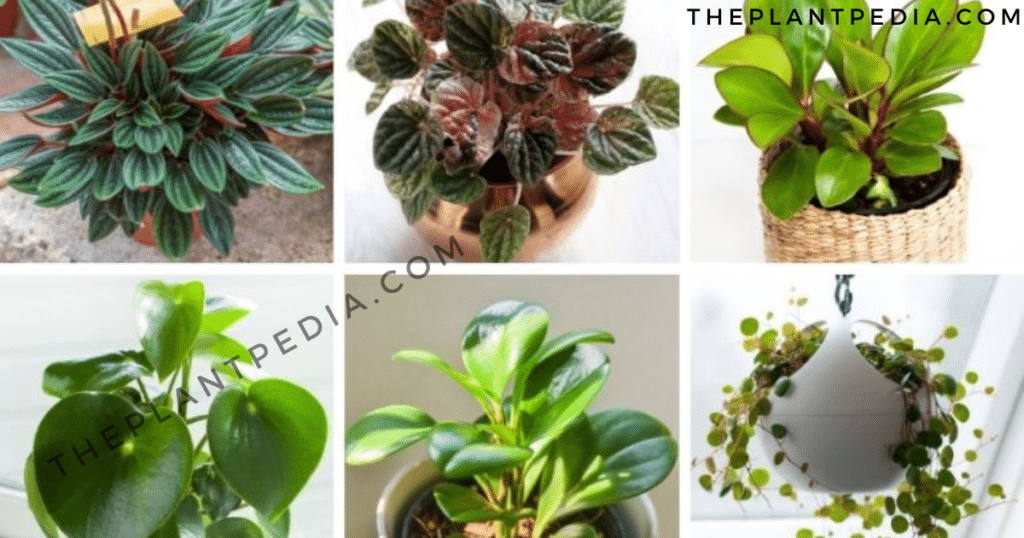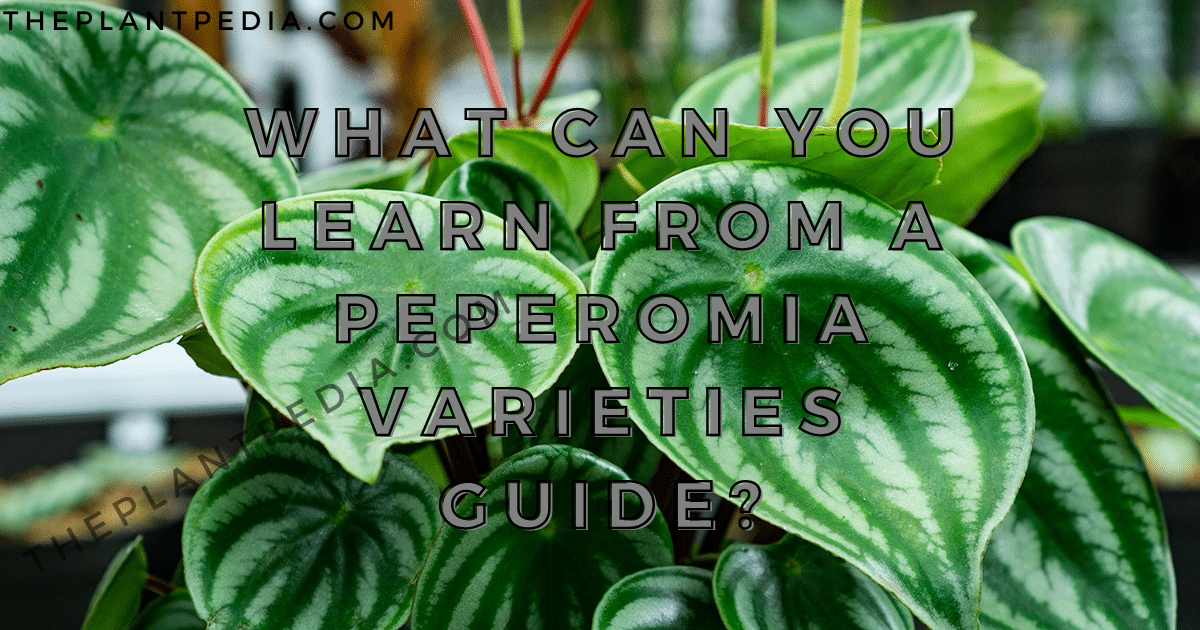Peperomia plants are beloved by plant enthusiasts for their stunning diversity and ease of care. With over 1,500 known species, this plant family offers a wide range of choices, from compact, bushy types to trailing varieties. A comprehensive Peperomia varieties guide is a treasure trove of information, helping you select the perfect plant for your home and care for it properly. In this article, we explore the key lessons you can learn from a Peperomia varieties guide, along with tips to maximize your plant-keeping experience.
Why Explore Peperomia Varieties?
1. Diverse Aesthetics
Peperomia plants come in various shapes, colors, and textures, offering something for every aesthetic preference.
Examples of Aesthetic Appeal:
- Foliage Colors: Shades of green, silver, red, and even variegated patterns.
- Leaf Shapes: Round, heart-shaped, or elongated.
- Textures: Smooth, rippled, or fuzzy.
2. Adaptability to Different Environments
Peperomia plants thrive in diverse conditions, making them ideal for indoor or outdoor spaces.
Key Features:
- Compact growth habit suitable for small spaces.
- Tolerance for varying humidity levels.
3. Ease of Care
Peperomia plants are low-maintenance, requiring minimal effort to thrive.
Common Care Traits:
- Moderate watering needs.
- Preference for bright, indirect light.
Key Takeaways from a Peperomia Varieties Guide
1. Understanding Popular Peperomia Varieties

A Peperomia guide provides detailed descriptions of popular species, helping you identify and choose the right plant.
Notable Varieties:
Peperomia Obtusifolia (Baby Rubber Plant)
- Features: Thick, glossy green leaves.
- Growth Habit: Upright and bushy.
- Care Needs: Tolerates low light and occasional watering.
Peperomia Caperata (Ripple Peperomia)
- Features: Rippled, heart-shaped leaves in shades of green, red, or silver.
- Growth Habit: Compact and low-growing.
- Care Needs: Prefers high humidity and indirect light.
Peperomia Prostrata (String of Turtles)
- Features: Tiny, patterned leaves resembling turtle shells.
- Growth Habit: Trailing.
- Care Needs: Requires well-draining soil and bright, indirect light.
Peperomia Argyreia (Watermelon Peperomia)
- Features: Silver-striped leaves resembling watermelon rind.
- Growth Habit: Compact and bushy.
- Care Needs: Thrives in moderate humidity and filtered light.
Peperomia Hope
- Features: Round, succulent-like leaves on trailing stems.
- Growth Habit: Semi-trailing.
- Care Needs: Adapts well to indoor conditions.
2. Matching Peperomia to Your Lifestyle
A guide helps you select a variety that suits your lifestyle and available care resources.
Factors to Consider:
- Time Commitment: Opt for low-maintenance types if you’re busy.
- Space Availability: Choose compact or trailing varieties based on your room layout.
- Lighting Conditions: Match plant needs to your home’s natural light.
3. Recognizing Unique Features and Benefits
Understanding the characteristics of different Peperomia species allows you to appreciate their uniqueness.
Unique Traits:
- Air-Purifying Properties: Peperomia plants can improve indoor air quality.
- Pet-Friendliness: Most varieties are non-toxic to cats and dogs.
4. Customizing Care for Specific Varieties
A guide outlines care requirements tailored to individual species, ensuring optimal growth.
Care Customization Examples:
- Soil Needs: Succulent-like Peperomias require well-draining soil.
- Watering Frequency: Varieties with thicker leaves need less frequent watering.
- Humidity Levels: Rippled or fuzzy-leaved types thrive in higher humidity.
5. Identifying and Solving Common Problems
A Peperomia guide helps you troubleshoot common issues, such as leaf discoloration or pest infestations.
Common Issues and Solutions:
- Yellow Leaves: Overwatering; reduce watering frequency.
- Drooping Stems: Underwatering or sudden temperature changes; adjust care.
- Pests: Spider mites or mealybugs; use insecticidal soap or neem oil.
6. Propagation Insights
Learning about propagation methods in a Peperomia guide allows you to multiply your plants and share them with others.
Popular Propagation Methods:
- Stem Cuttings: Suitable for most upright varieties.
- Leaf Cuttings: Effective for species with succulent-like leaves.
- Division: Ideal for clumping varieties.
How a Peperomia Guide Enhances Your Experience
1. Expands Your Knowledge
A Peperomia guide offers in-depth knowledge about the plant’s history, origin, and cultural significance.
2. Encourages Experimentation
Discovering new varieties inspires creativity in plant arrangements and displays.
3. Builds Confidence
Understanding care requirements boosts your confidence as a plant owner.
4. Strengthens Your Plant Collection
A guide helps you make informed decisions when adding to your collection.
Tips for Using a Peperomia Guide Effectively
1. Identify Your Needs
Focus on varieties that match your aesthetic preferences and care capabilities.
2. Take Notes
Document care tips and observations for each variety to track your progress.
3. Explore Further Resources
Combine the guide with online forums, videos, or plant care apps for comprehensive knowledge.
4. Share Your Learnings
Engage with other plant enthusiasts to exchange tips and experiences.
Also Read: What Are The Best Peperomia Care Tips For Beginners?
Conclusion
A Peperomia varieties guide is a valuable resource for anyone looking to explore the beauty and diversity of these charming plants. By learning about different species, their care requirements, and unique features, you can make informed choices to enhance your indoor garden. Whether you’re a beginner or a seasoned plant parent, a Peperomia guide empowers you to appreciate and care for these versatile plants with confidence. Start exploring the fascinating world of Peperomia today and elevate your plant collection to new heights!

